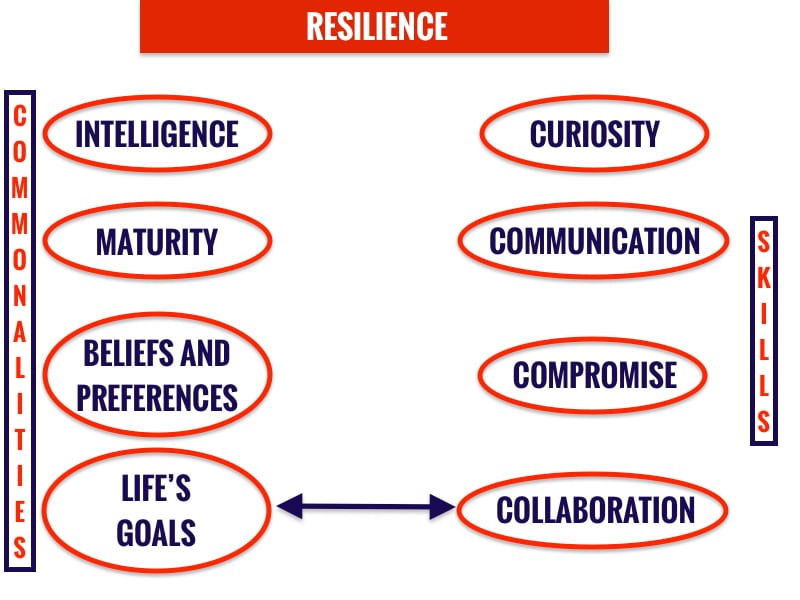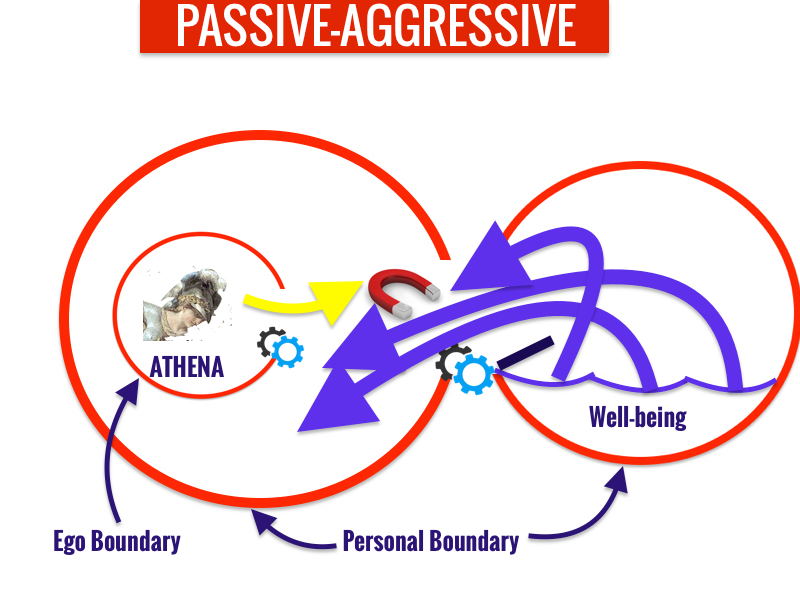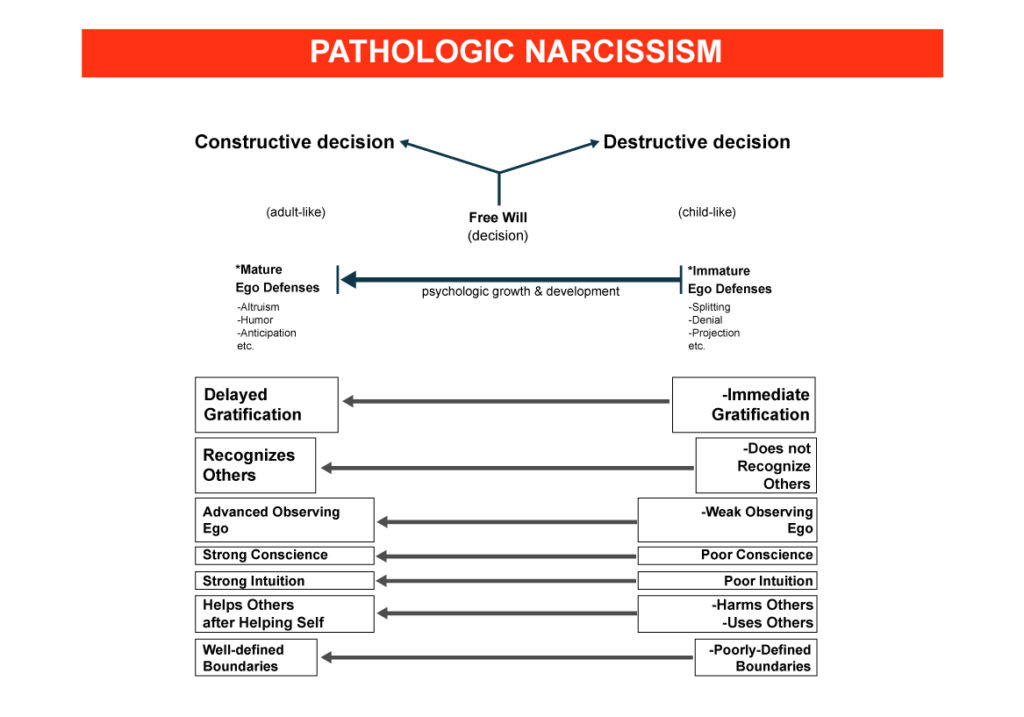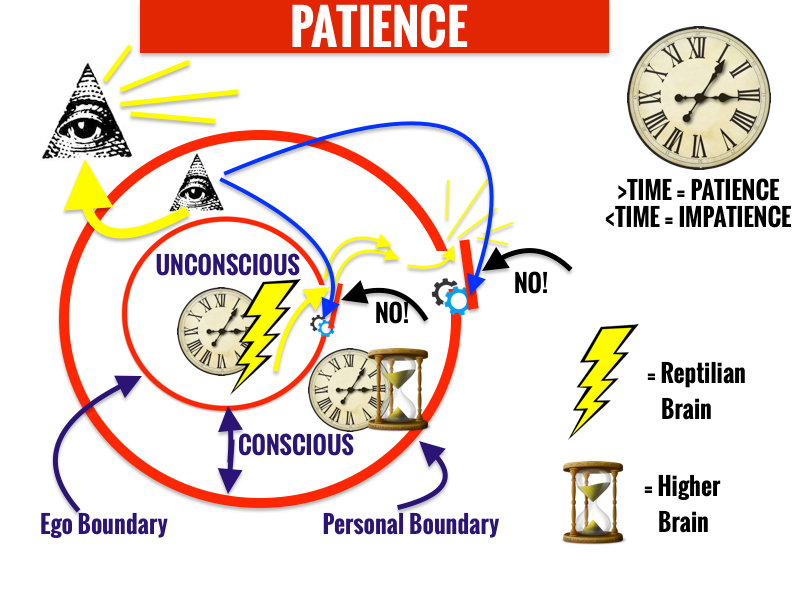Character Compatibility is a different harmony between partners than an alignment of personality styles, or of polarity of masculinity and femininity. It goes far beyond shared interests, to be sure. Since Phase 3 of Courtship - Teamwork, Partnership, and Commitment - are about aligning to be a successful team at getting to joint goals in intellectual attraction. Then the compatibility we are talking about must be about a joint encouragement of the faculties of the intellect, executive function, and maturity of character that makes not only an individual highly efficient and effective at getting to goals, but of the "sum being greater than its parts" in making each other more successful than the individuals could, alone.
As such, there is a mutual amplification of the tendency to grow more mature and successful on account of each other. To expand each partner's personal growth on account of the interventions of the other partner. To the principles of Romantic Dynamics, this means a mutual set of virtues of character that are unique and special to that couple.
Virtues of character make for a good person, a wise person and a successful person, but virtues are not all interchangeable or of equal amplification of each other. Some are more or less, related to each other and others have more diversity when collected together. In the end, there are certain combinations of virtue in two partners that are going to be more in alignment, more balancing and rounding out of each other in composing a couple.
So, Character Compatibility will need to see us coupling with a person whose own character virtues of their maturity having a special "chemistry" with our own, and one that leads to more efficient, effective success at our joint life's goals as a couple.
In Phase 3 of Romantic Dynamics and the courtship process, Step 7, "Who We Are," then we need to look at the 4 Skills of Commitment, in how advanced they are for each partner, as well as the 4 Commonalities of Commitment in how aligned we are, "culturally," which will suggest an automatic harmony of any attempt at joint goals as a couple.
"Two-factor Authentication" is a term we use for combining these two sets of four factors, to make a total of 16 Cardinal Virtues of Romance - the permutation and combination of each of four skills of intellectual attraction with four common beneficial features of intellectual attraction which also make an individual successful in life.
The Four Skills of Commitment that smooth our teamwork are also called the "4 C's" - Curiosity, Communication, Compromise, and Collaboration. One leads to the next, for example, we won't even bother to communicate if one or both of us lack curiosity. We can't begin to compromise and join resources if we can't communicate accurately and with appeal, and we certainly can't collaborate, if we have very different agendas and conflicting life's goals, having not gone through the synthetic process of compromise, to prevent major "sacrifices" in the future.
The Four Traits or Commonalities of Commitment that power individual success (but also influence choice of goals) are Intelligence, Maturity, Similarity of Beliefs (and Preferences), and Similarity of Life's Goals. It is important to remember that the power of the commonalities of Commitment rests in the fact that they are "in common": Two people with similar intelligence, similar maturity, similar beliefs, and similar life's goals. One person, alone, cannot carry all the weight of the team with these, and so they should be used early, in screening a date, boyfriend or girlfriend as a potential partner. In addition, large differences in these four, results in a "difference in cultural background" - the two people are "just too different to be compatible," a problem that just can't be overcome by more intelligence, more maturity, or more of any of the virtues, like heroism, resilience, or others. Many people beat their head against a wall over this, thinking, "If only I could be even more X, better, smarter, etc," then things will work out. They won't, without commonality of a majority of these traits.
 Combining the first four with the latter four, give us 16 Cardinal Virtues of all intellectual, goal-oriented romantic connections to a mate, even though one can have hundreds of kinds of virtues to their character. In the example at left, we see the Trait of Life's Goals combine with the Skill of Collaboration to give us the last important Virtue of Commitment, or "Cardinal Virtue" or "character virtue" a partner needs to cultivate in order to be a solid partner in romance, for life: Resilience.
Combining the first four with the latter four, give us 16 Cardinal Virtues of all intellectual, goal-oriented romantic connections to a mate, even though one can have hundreds of kinds of virtues to their character. In the example at left, we see the Trait of Life's Goals combine with the Skill of Collaboration to give us the last important Virtue of Commitment, or "Cardinal Virtue" or "character virtue" a partner needs to cultivate in order to be a solid partner in romance, for life: Resilience.
In addition, the uniqueness of our own attachments and identifications with our specific and unique parents, and the random lot we have been given in being born to our particular parents will result in tendencies of being intellectually attracted to particular kinds of people with traits similar to our opposite sex parent, and to having made part of our core character tendencies, similar traits of our same sex parent. This occurs through the imprinting processes of attachment and identification, respectively.
These will lead us to wanting to find all 16 Cardinal Virtues in one person and one romance, if that were possible. But regardless of our imperfections, we can do almost all we seek to accomplish in a romantic life, if we can at least find one, what Romantic Dynamics calls, "Golden Virtue" in the potential partner. This will be the one Cardinal Virtue that the other partner both imprinted and cultivated from their own same-sex parent, and which is similar to that one virtue of our opposite-sex parent, which we found most appealing and compelling to aspire to.
If the core feature of there even being an advantage to being in a long term relationship is that of having success in getting to lifelong goals with a partner, then it might make sense to you that your union should have a combination of the 4 most crucial personal traits of a successful individual - intelligence, maturity, beliefs, and goals - combined with the 4 most crucial skills of any pairing on a team, or partnership - curiosity, communication, compromise (synthesis), and collaboration (execution.)
With this in mind, let us look at the 16 Cardinal Virtues that define Step 8 of courtship.
The 16 Cardinal Virtues of Romance
- THE PARTNERSHIP SKILL OF CURIOSITY
- Scholarliness: Intelligence + Curiosity ➳
- Philosophy: Maturity + Curiosity ➳
- Honor: Beliefs + Curiosity ➳
- Aspiration: Goals + Curiosity ➳
- THE PARTNERSHIP SKILL OF COMMUNICATION
- 5. Influence: Intelligence + Communication ➳
- 6. Elegance: Maturity + Communication ➳
- 7. Honesty: Beliefs + Communication ➳
- 8. Inspiration: Goals + Communication ➳
- THE PARTNERSHIP SKILL OF COMPROMISE
- 9. Authority: Intelligence + Compromise ➳
- 10. Justice: Maturity + Compromise ➳
- 11. Service: Beliefs + Compromise ➳
- 12. Heroism: Goals + Compromise ➳
- THE PARTNERSHIP SKILL OF COLLABORATION
- 13. Competence: Intelligence + Collaboration ➳
- 14. Equanimity: Maturity + Collaboration ➳
- 15. Resourcefulness: Beliefs + Collaboration ➳
- 16. Resilience: Goals + Collaboration ➳
THE PARTNERSHIP SKILL OF CURIOSITY
The first skill of partnership in a long-term romantic relationship is perhaps the most important: CURIOSITY. It means more than just an interest in current events. It means having an active mind that asks kind questions of ourselves and our partners, and without it, we cannot build the other three Skills of Commitment, or Partnership.
Curiosity means that we don't just believe anything we read, or gossip we hear, but we are willing to investigate the emotional truth of any matter, and by using the psychological core skill of personal growth, Observing Ego, we are awake and aware to what is happening in our relationship and our environment, willing to grow and change with them both. Without Observing Ego, and therefore, without Curiosity as a skill, we end up with major regrets in our relationships. These 4 Virtues, below, can guarantee you a leg up on having more curiosity in your relationship.
Scholarliness: Intelligence + Curiosity ➳
Scholarliness is a combination of the skill of Curiosity with the trait of intelligence. Curiosity, you may remember, is largely composed of the core psychological skill of Observing Ego, paired with an educated eye, full of "left brain" ability for detail, history, and organization. The skill of curiosity is universally useful, no matter what one's intelligence level is, but in the absence of the latter, a curious person may have a lot of obstacles and pitfalls to overcome on their life's path - like the medieval fictional character, Parcival, noble, but rife with mistakes and lessons before getting to his goals. As a result, it is very advantageous to pair someone with both ample book-learning education, yet also with a robust set of lessons in life's experience, and an inborn gift of intelligence from the start - the large capacity to efficiently fill up on both forms of learning: education AND experience.
Philosophy: Maturity + Curiosity ➳
Philosophy is a combination of the skill of curiosity with the trait of maturity. Curiosity, you may remember, is largely composed of the core psychological skill of Observing Ego, paired with an educated eye, full of "left brain" ability for detail, history, and organization. It has bearing on our performance in phase three - intellectual attraction - step eight, where we seek to amplify the best virtues toward our goals.
Honor: Beliefs + Curiosity ➳
Honor is a combination of the skill of curiosity with the trait of beliefs. Curiosity, you may remember, is largely composed of the core psychological skill of Observing Ego, paired with an educated eye, full of "left brain" ability for detail, history, and organization. Beliefs, you may recall, pertain to ideas that we deem to be true and valid, and yet carry such a large degree of emotion in them, that they are valued by us, and become such a part of our decision-making strategies, that they are far more than just ideas. We think of them as "truths" in part, because they also emerge as a function of our very identity. Honor has bearing on our performance in phase three - intellectual attraction - step eight, where we seek to amplify the best virtues toward our goals.
Aspiration: Goals + Curiosity ➳
Aspiration is a combination of the skill of curiosity with the trait of having eyes on goals. Curiosity, you may remember, is largely composed of the core psychological skill of Observing Ego, paired with an educated eye, full of "left brain" ability for detail, history, and organization. Goals, you may recall, pertain to actual accomplishments that we do not yet attain, own or control, which makes the attaining of goals, the only mature, legitimate way of actually gaining more real control over our world. We think of them as "what we want to become,"which is the same as aspiration, only if we really do care about them and have curiosity about their nature and how we might gather our resources to attain them. They, then, also emerge as a function of our very identity. Aspiration has bearing on our performance in phase three - intellectual attraction - step eight, where we seek to amplify the best virtues toward our goals.
THE PARTNERSHIP SKILL OF COMMUNICATION
The second Skill of Partnership is one that cannot happen without Curiosity, first. Communication is more than just sending text messages and emails. It is the crucial foundation for the other two necessary long term partnership skills of Compromise and Collaboration. It is also, other than the sensations of touch and sight, the major means by which we can even convey love, through emotional expression, the Emotional Attraction, Phase 2 of Courtship.
While Sexual Attraction may be conveyed largely nonverbally, through touch and sight, Intellectual Attraction - the seeking of goals successfully as a couple, and whole purpose of Phase 3 of Courtship - would not be possible without great communication. We need to communicate accurately, dynamically, and remember that communication is both that of ideas and emotions too, simultaneously. When we are not good at this, we essentially are crippled at loving, and find it impossible to reach success as a team and couple. These 4 Virtues below, can guarantee you success at communication.
5. Influence: Intelligence + Communication ➳
Influence is a major virtue of commitment, which is a combination of the skill of communication with the commonality, or trait of intelligence. Communication can be looked at in various ways. Simply put, it is an expression of ideas that also likely carry emotional energy as well. This makes them similar to beliefs, which have the same structure, but the difference is that beliefs are contained within us, sometimes unconsciously, until expressed to others in communication.
6. Elegance: Maturity + Communication ➳
Elegance is defined as "making the complex, simple to understand," and is composed of the skill of communicationwith the commitment trait of maturity. It is the quality of being graceful and stylish in appearance or manner; style." A slender woman with grace and elegance" is an example.
7. Honesty: Beliefs + Communication ➳
Beliefs are first and foremost, private and personal, and so the communication of beliefs is quite honest. When you convey your ideas honestly, you include the data, but also the heart-felt emotion associated, and are taking a bit of a risk with the audience in so doing. This makes honesty a virtue, because you are being constructive and win/win in offering your ideas to others, some of which may be beneficial to them, and to you. But in choosing the wrong audience or wrong composition of the audience for your message, you may be misunderstood, or worse, unfairly criticized or attacked by them for your ideas.
8. Inspiration: Goals + Communication ➳
Beliefs are first and foremost, private and personal, and so the communication of beliefs is quite honest. When you convey your ideas honestly, you include the data, but also the heart-felt emotion associated, and are taking a bit of a risk with the audience in so doing. This makes honesty a virtue, because you are being constructive and win/win in offering your ideas to others, some of which may be beneficial to them, and to you. But in choosing the wrong audience or wrong composition of the audience for your message, you may be misunderstood, or worse, unfairly criticized or attacked by them for your ideas.
THE PARTNERSHIP SKILL OF COMPROMISE
The third skill of Commitment and Partnership - Compromise - must be in place before we can actually reach the final step of achieving success in our shared goals in life as a couple, through Collaboration. Otherwise we will be actively investing in goals, but secretly or not so secretly working at cross purposes in the 11th hour before success. We all know what the word means, and usually people assume that it is entirely composed of sacrifices of some sort, when we are discussing relationships.
However, in the Romantic Dynamics definition, we are trying to minimize "sacrifice," to instead focus on SYNTHESIS of two different people's lifelong goals and dreams. It is a discussion, and without communication ability, and curiosity to begin with, we cannot hope to get to compromises on what our shared, joint goals will be.
In a successful, long term relationship, there absolutely has to be an honoring of each individual's PERSONAL life's goals and dreams. Without this, the entire concept of a committed relationship is doomed, by way of being nothing but a giant sacrifice for both parties, or else a many-years-long bullying session, where one codependent partner dominates the other, and only one person lives their dreams while the other person is up for lifelong sacrifice. Compromise as a master Skill of Commitment, guarantees that both people "win," thorugh a constructive synthesis that joins their personal goals at the hip, to make joint, couples' goals. These four Cardinal Virtues can be cultivated to help you master Compromise at this level.
9. Authority: Intelligence + Compromise ➳
Authority is defined in the dictionary as "the power or right to give orders, make decisions, and enforce obedience." The nature of this term is seen as being of appeal as a trait in a partner which one needs if they are more of a thinking and feeling type person, as opposed to a "do-er." It is a character trait and virtue that you want, when you see yourself desiring a partner with a "take charge attitude." Authority is a combination of the Skill of Compromisewith the trait (or Commonality) of Intelligence.
10. Justice: Maturity + Compromise ➳
Justice is one of the mature, high character virtues which rightfully gives feedback to others in the form of guilt. As opposed to passive-aggressiveness or masochism, which seeks to dump anxiety or guilt on others, justice is meant to encourage a correction of behavior in the areas of the conscience or ethics on the part of the receiving partner, or correction of the naivete or lack of intuition on the part of the overly conscientious partner learning to execute justice.
11. Service: Beliefs + Compromise ➳
Service is defined in the dictionary as "supplying or delivery," or "a system supplying a public need such as transport, communications, or utilities such as electricity and water." The nature of this term is seen as being of appeal as a trait in a partner which one needs if they are more of a thinker and private person, but enjoy access to people and experiences other than their more comfortable, humble world. It is a character trait and virtue that you want, when you see yourself desiring a partner with both "devotion" (as in, "to a cause") and "access" or "connections." Service is a combination of the Skill of Compromise with the trait (or Commonality) of Beliefs.
12. Heroism: Goals + Compromise ➳
Heroism is defined in the dictionary as "bravery, courage, valor, intrepidity, boldness, daring, audacity, fearlessness." It is a character trait and virtue that you want, when you see yourself desiring to help or even save a partner. Heroism is a combination of the Skill of Compromise with the trait (or Commonality) of success at goals.
THE PARTNERSHIP SKILL OF COLLABORATION
The 4th and final Skill of Commitment or Partnership is the one where we finally take everything we share, and join forces and resources to actually commit to investing them in a direction toward achieving our joint goals. There is no turning back, now. Which is why, if we didn't have Curiosity, Communication, and Compromise online first, we would be doomed to failure and the waste of our resources of time, energy and money. Without Curiosity, we shouldn't be with such a person. They are wasting our time as a pseudo-teammate in life. Without accurate and heart-felt Communication, we will be prone to error and misunderstandings that cause failure.
Without Compromise, we have not yet "synthesized" our personal goals and dreams together with joined, shared, RELATIONSHIP goals and dreams as a couple, causing such confusion, cross-purposes and sacrifice instead of success, that we would not last as a couple.
With Collaboration, we learn to work as a dynamic team, willing to change direction, fight threats, overcome obstacles, all with the full passion of the reptilian brains - our masculinity and femininity - those instincts which light up when we pursue our dreams. With Collaboration, we also become ever-tighter friends, best-friends, in fact, sharing love and the positive emotions of friendship.
Finally, it is only with Collaboration that the "two may join as one" - seen in the world's marriage rites, where the power of a team of two (at achieving goals and dreams jointly) - that a couple can consistently succeed at their dreams, time and time again. These 4 Virtues will help you master this skill as partners.
13. Competence: Intelligence + Collaboration ➳
Competence is defined in the dictionary as "the ability to do something successfully or efficiently." It is a character trait and virtue that you want when you see yourself desiring to get to a goal quickly and with the least waste of resources, which is efficiency. Competence is a combination of the Skill of Collaboration with the trait (or Commonality) of Intelligence.
14. Equanimity: Maturity + Collaboration ➳
Equanimity is defined in the dictionary as "mental calmness, composure, and evenness of temper, especially in a difficult situation." It is a character trait and virtue that you want when you see yourself desiring to get to a goal smoothly and with the least waste of resources on drama, error, overwhelm and fear, which is obviously a function of having good boundaries with doors rather than boundary holes. Equanimity is a combination of the Skill of Collaboration with the trait (or Commonality) of Maturity.
15. Resourcefulness: Beliefs + Collaboration ➳
Resourcefulness sounds like a general term, but it is highly specific in Romantic Dynamics terminology as combining the Skill of Collaboration with the Trait or Commonality of Beliefs, to make for a person who is gifted and practiced at gathering team resources together to ready them for actual execution toward a joint goal. To others, it may seem like they can "do magic" with very little, and so the character virtue falls into the domain of natural funciton of the Magician Personality Style.
16. Resilience: Goals + Collaboration ➳
Resilience sounds like a general term, but it is highly specific in Romantic Dynamics terminology as combining the Skill of Collaboration with the Trait or Commonality of Goals and their execution and achievement, to make for a person who is gifted and practiced at actual execution toward a joint goal as a team. It may seem surprising that this character virtue is not one like "decisiveness" or 'being a winner" (although Resilience is really the ONLY way to actually "win" in the end.) It recognizes the human condition as imperfect and prone to little failures on the way to a goal, but the ability to "pick one up by the bootstraps" and persist, anyway.




